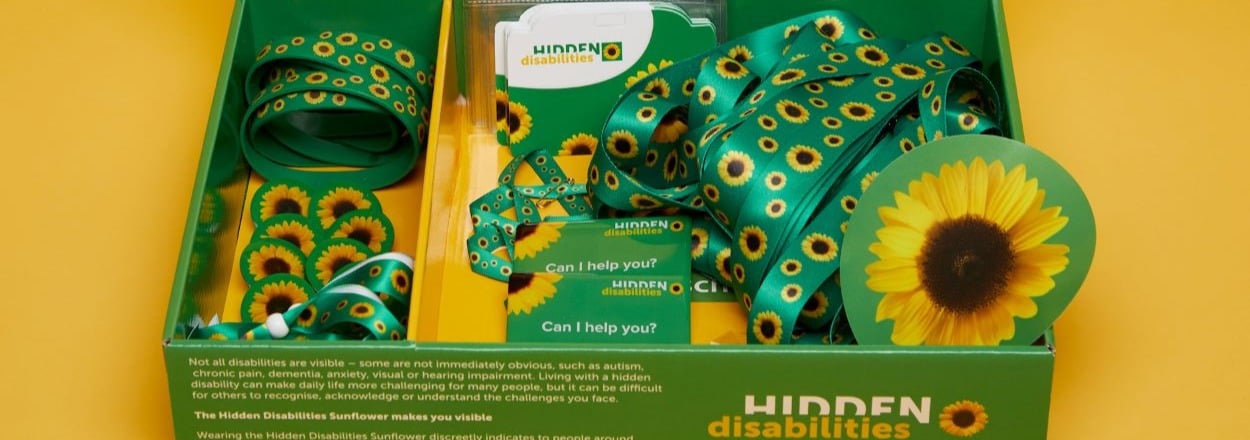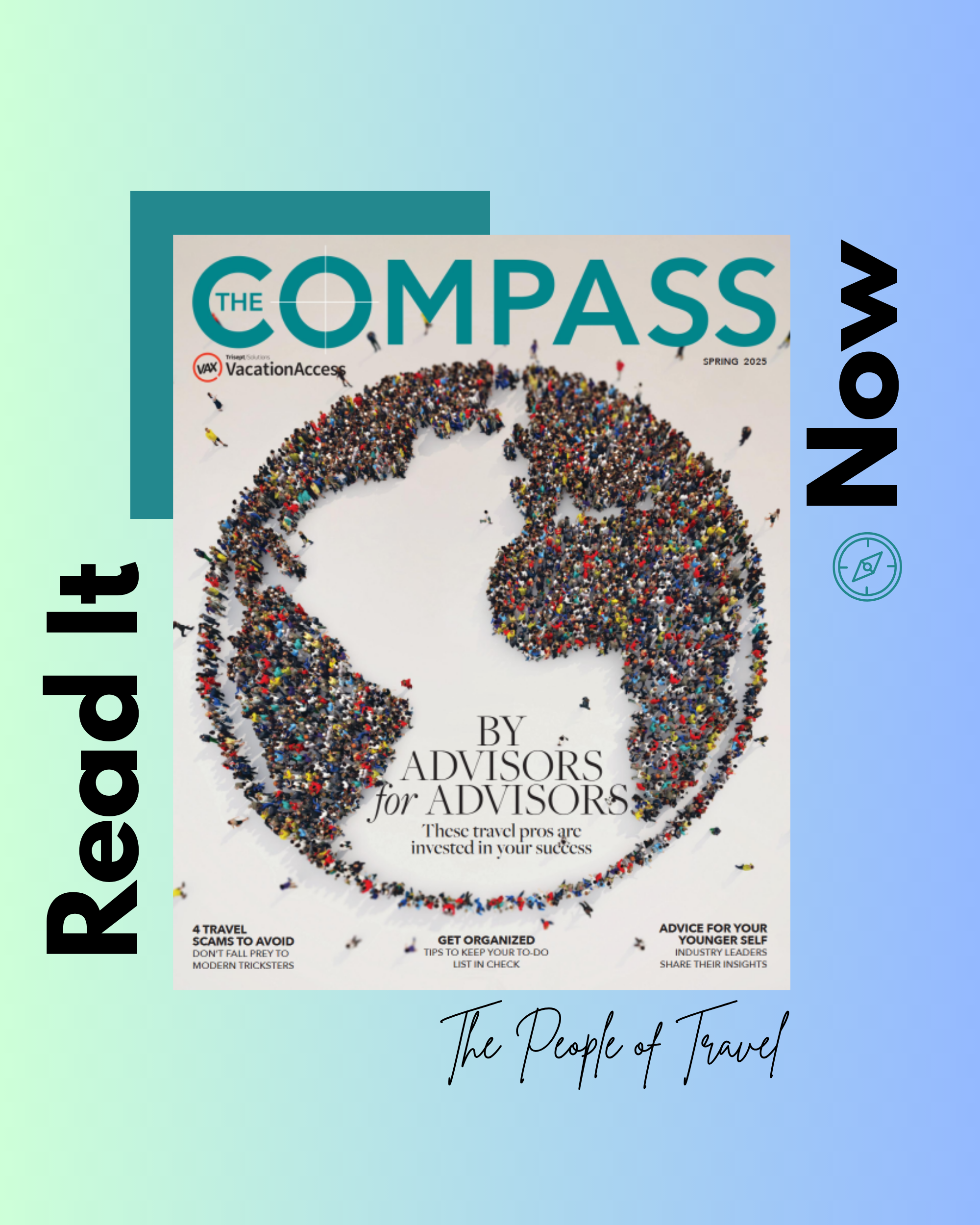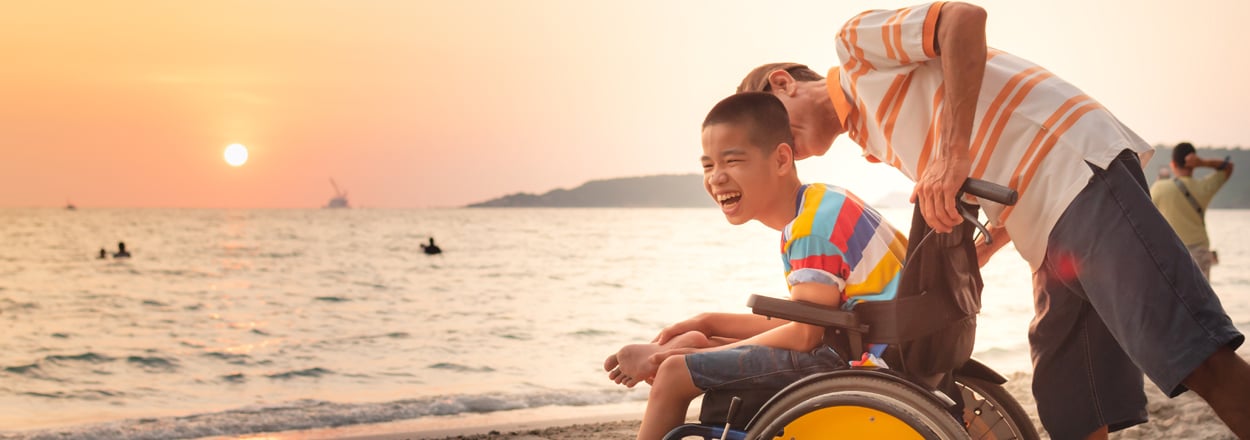Anxiety, dementia, chronic pain, ADHD, asthma, diabetes … Did you know these common health conditions are all considered “hidden disabilities?” Unlike a visible disability, a hidden disability has little to no outward indicators making it difficult, and sometimes even impossible, for others to recognize without disclosure. Hidden Disabilities Sunflower — a company dedicated to making invisible disabilities visible — wants people to know that doesn’t mean they don’t exist. In fact, it’s quite the opposite, with the organization sharing that an estimated one billion people around the globe have a hidden disability.
Working to make life a little easier for those living with these conditions, including when it comes to traveling, is Hidden Disabilities Sunflower’s popular program by the same name which urges participants to become what it calls “Sunflower wearers” by donning a pin, lanyard or wristband decorated with the familiar yellow plant.
Akin to a secret code word, the flower acts as a stealthy communication to participating staff and businesses, a golden symbol signifying that the wearer might need a little extra TLC as they go through the motions. “Trained staff at participating venues offer (Sunflower wearers) tailored assistance, such as extra time or navigation help,” said Lynn Smith, regional director, U.S. for Hidden Disabilities Sunflower. “Airport employees are trained to recognize the HD Sunflower and will ask if they can help.”
“Everyone has a right to travel, and our aim is a world where people with invisible disabilities are confident to travel independently knowing that they will receive the support that they may need at every stage of their journey,” said Smith.
![]()
When asked how travelers can utilize the Hidden Disabilities Sunflower while on the road, Smith gave a few examples. “Travelers who are neurodivergent, have anxiety, dementia (or a) brain injury may use the Sunflower to indicate they need more time, patience and support navigating the airport and following airport personnel instructions,” she said. “Travelers with medical devices that are not visible, such as ostomy bags, PICC lines or an implantable cardiac defibrillator, may use the Sunflower to indicate they need specialized security screenings to safely accommodate their devices. Travelers who have chronic pain, limited mobility or limb weakness may use the Sunflower to indicate they need a place to sit down and rest and/or need more time to complete tasks.”
Finally, if you encounter someone wearing a Hidden Disabilities Sunflower during your next trip, Smith says it’s important to follow the “Sunflower Rule of 6:” 1) Ask if you can help, 2) Be kind, 3) Listen closely, 4) Have patience, 5) Do not judge and 6) Show respect.
Tell Your Clients
According to Smith, travel advisors play an important role in spreading the word about the Hidden Disabilities Sunflower program. She wants advisors to know that the Sunflower symbol is widely recognized internationally, and that Sunflower lanyards are often free at participating locations or are available for purchase.
Regarding why advisors should get involved, Smith says it's all about how they’ll make their clients feel. “By joining the program and becoming a member, advisors can enhance accessibility and inclusivity in travel, ensuring that all clients feel supported throughout their journey,” she said. “When (advisors) become members, they can supply products to their clients. They can also share lists of participating venues and highlight how the program enhances travel for those with non-visible disabilities. Recommending the website ensures clients have access to the most accurate and comprehensive information.”
Originally appeared in the Spring 2025 issue of The Compass magazine







comments